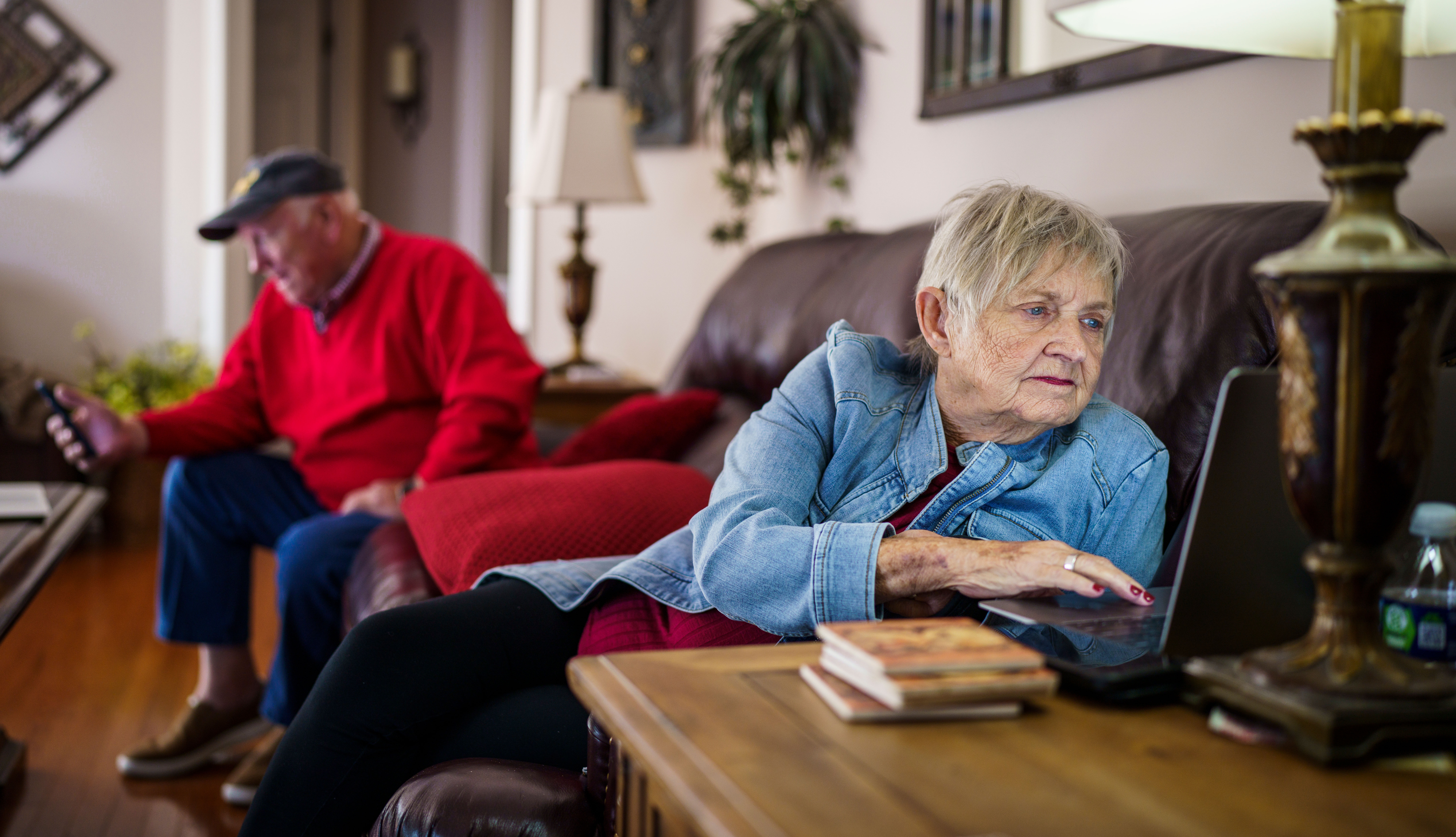AARP Hearing Center

When the coronavirus pandemic forced the shutdown of schools and businesses last year, tens of millions of Americans turned to the internet to shop, video chat with loved ones, have virtual visits with their doctors and stave off boredom by streaming movies and TV shows. But not Charlie and Sarah White.
The couple are among the more than 400,000 Tennesseans who lack reliable access to high-speed internet. No company offers it where they live near Lebanon, even though it’s only 25 miles outside of Nashville. It can be maddening, especially while trying to do their AARP volunteer work, says Charlie White, 71, who works with veterans and has been trying to help as much as he can during the pandemic.
“Some of these people, especially with everything going on right now, need people to talk to,” White says. “If you’re on a video call and you keep getting kicked out, that’s just more frustration for them.”
Expanding high-speed internet is a top priority that AARP Tennessee will advocate for when the state General Assembly returns Jan. 11. Older residents need internet access now more than ever so that they can remain independent, says Martin Penny, AARP Tennessee’s associate state director of advocacy.
In August, officials announced plans to use $500 million in federal coronavirus relief money to increase broadband access. Beginning in the spring, most of the funds—$400 million—will be distributed as grants to companies that serve areas with limited internet. The rest will go to internet bill subsidies for low-income Tennesseans, and local community connectivity and Wi-Fi programs.
AARP is glad to see American Rescue Plan dollars go toward improved internet access but hopes to see continued investment moving forward, Penny says.
During the 2022 legislative session, AARP will also press state lawmakers to expand telehealth and home- and community-based services, which help people continue to live safely and comfortably in their homes as they get older.
Home care, telehealth key
The devastation wrought by COVID-19 in nursing homes last year laid bare the need for more resources to help older adults get care at home, instead of ending up in long-term care facilities.
In Tennessee, the coronavirus has killed more than 2,700 long-term care residents, state data shows. This tragedy has caused many people to delay moving into these facilities—putting greater pressure on caregivers and organizations that serve people at home, Penny says.
AARP will encourage lawmakers to fund expanded home- and community-based services, which include things like help with meal preparation, walking assistance and respite for family caregivers.
Telehealth—which requires an internet connection strong enough to handle video streaming—also remains crucial for older adults who want both the safety and the convenience of having a virtual visit with their doctor, Penny says.
It’s not clear how many Tennesseans over age 50 lack access to high-speed internet. But a recent report by the state Advisory Commission on Intergovernmental Relations estimates that there are more than 432,000 residents who can’t get broadband service because no company provides it in their area. The state is working to develop a map showing coverage gaps.
“Our main goal is to be sure Tennesseans can age in place,” Penny says. “The pandemic has shown how vital internet access is for those of all ages.”
To learn more about AARP Tennessee’s legislative advocacy efforts, go to aarp.org/tn.
Sheila Burke is a writer living in Nashville.
For More on Technology































































